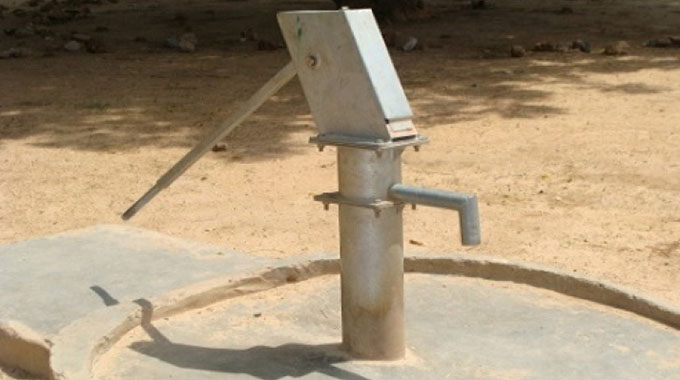Bob Marley’s Zim Independence war cry

Isdore Guvamombe
Bob Marley, one of the world’s most politically conscious international reggae musicians, closely followed Zimbabwe’s war of liberation in the 1970s.
He supported the liberation of Zimbabwe from colonialism, unapologetically with his music and capped it all by performing at Zimbabwe’s independence celebrations at Rufaro Stadium in 1980.
Born Nesta Robert Marley in Kingston, Jamaica, Marley identified with the oppressed people’s struggle for emancipation the world over, the struggle for dignity and for rights to equality. Zimbabwe’s struggle was so dear to him as he composed a song for the country at the height of the armed struggle.
On October 2 1979 Bob Marley released his 11th album “Survival” on his Tough Gong Studio International label and on that album was the song “Zimbabwe”.
“Every man got a right to decide his own destiny
And in this judgment there is no partiality
So arm in arms, with arms, we’ll fight this little struggle ‘Cause that’s the only way we can overcome our little trouble
“Brother, you’re right, you’re right
You’re right, you’re right, you’re so right!
We gon’ fight (we gon’ fight), we’ll have to fight (we gon’ fight)
We gonna fight (we gon’ fight), fight for our rights!
“Natty Dread it inna (Zimbabwe)
Set it up inna (Zimbabwe)
Mash it up a inna Zimbabwe (Zimbabwe)
Africans a liberate (Zimbabwe), mhm
“No more internal power struggle
We come together to overcome the little trouble
Soon we’ll find out who is the real revolutionary
‘Cause I don’t want my people to be contrary…”
And it was not by coincidence that at independence in 1980, Marley was invited to performance at the birth of Zimbabwe and shared the stage with Thomas Mapfumo.
So dedicated and honoured was Marley to come to Zimbabwe that he personally funded the shipment of 30 tonnes of equipment to Harare, then Salisbury and chartered a plane for his band.
In the morning when he went testing for equipment at Rufaro Stadium the sound-check confirmed to many in Mbare that indeed Marley was around.
At around 11pm after witnessing the official handover takeover of the country, through the lowering of the British flag by Prince Charles (now King Charles) and the raising of the new Zimbabwe flag, Marley went on stage.
As soon as he started performing the song “I shot the Sheriff”, crowds poured from Mbare suburb and dashed to the stadium.
Refugees of war at a nearby camp broke loose and invaded the stadium and police had to use tear smoke to stop them, but it did not work. They broke into the stadium and joined the festivities.
Marley and his band, the Wailers, momentarily retreated back stage but as soon as everything settled he went back and continued.
A hell of happiness broke loose when Marley performed the song “Zimbabwe” and sent fans and dignitaries into a frenzy amid shouts of “Viva Zimbabwe . . . Viva Zimbabwe!” by the fans.
Marley felt people had not received enough because of the official programme and staged another show the following day, much to the delight of Zimbabweans.
Prior to Independence, Marley had many songs that inspired freedom fighters like “Redemption Song and “Rise Natty Rise”.
Many might not be familiar with the name Dr Gibson Mandishona, who is now late, but this man was partly instrumental to the composition of the song “Zimbabwe”.
In an interview with our sister paper the Sunday Mail, Mandishona said it was in Ethiopia — where he was working for the United Nations as a statistics and demography consultant — that met Bob Marley in the late 1970s. The two would become good friends, leading to the idea of coming up with a song for Zimbabwe.
“In the 1970s I was working for the UN in Ethiopia and together with several colleagues who had a passion for music, we formed a jazz band we called The United Nations Jazz Band.
“In that band from Zimbabwe there was myself, (ex-Finance Minister) Herbert Murerwa and Cephas Mangwana; but there were eight other members from other African countries. Our band used to play at various UN functions and other events where we would have been invited.
“Bob Marley used to come to Ethiopia to support the Rastafarian movement that was present in that country and during one of his visits he made enquires about people who were involved in music that side and apparently our group was brought to his attention and this is how we got to be connected.
“We became friends and he would come to my house and we would rehearse together. I was not a reggae artiste as I was more inclined to jazz music, but then again Bob was a patient teacher who taught me the chords and progressions of the genre.”
It was Marley who came up with the idea to work on a song for Zimbabwe.
“He highlighted that Zimbabwe was on the brink of Independence and it would be great if we could actually write a song for the country so we started working on the track.
It was a humbling experience when he witnessed the reggae maestro performing the song he had helped create at the Independence celebrations at Rufaro Stadium in April 1980.
“This song was so special in the sense that it was timely as it was sung during the Independence celebrations and the fact that it was being performed by an artiste of that calibre, who was a sympathiser of the liberation movement was just amazing,” says Mandishona.
Bob Marley died about a year later, in 1981, (MHSRIP) and as we celebrate our 44th birthday, Marley would have been 79 years old if death had not robbed us of him.
Zimbabwe lives on.










Comments